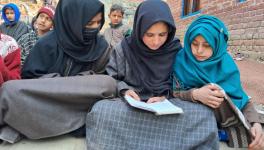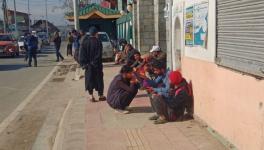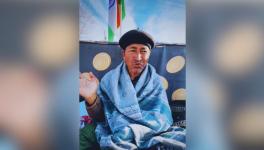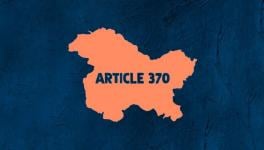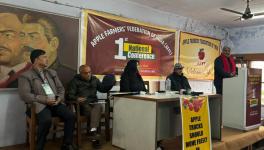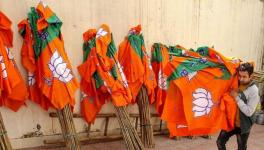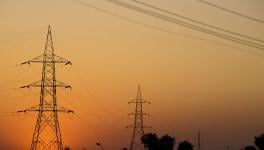Crucial Lessons from History in Book on Kashmir
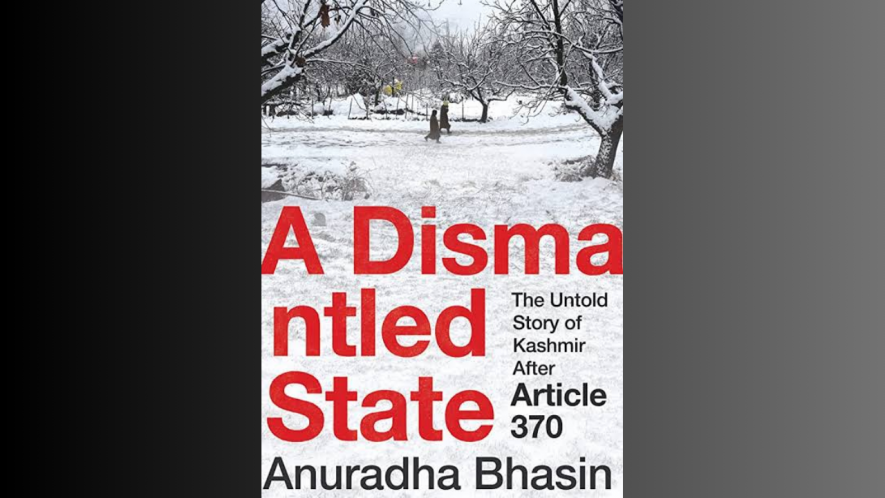
A Dismantled State: The Untold Story of Kashmir After Article 370 by Anuradha Bhasin (Published by Harper Collins)
In her latest book, A Dismantled State: The Untold Story of Kashmir After Article 370, journalist and executive editor of The Kashmir Times, Anuradha Bhasin, brilliantly accounts for what exactly changed with the creation of India’s newest Union Territory. In her view, politics in Jammu and Kashmir—as visibly manifested on 5 August 2019—has left peoples’ aspirations in the erstwhile state, especially the valley, devastated.
Bhasin painstakingly details events in Kashmir since Articles 370 and 35A were revoked and clearly explains the present-day situation. Despite her steadfast focus on the valley, she details the historical backdrop and factors that led to the systematic destruction of citizens’ democratic rights and spread distress, fear, and uncertainty among residents.
In 2002, an auto-rickshaw driver in Srinagar told this writer: ‘Here, if A kills B, C will be arrested even though he was just a bystander.’ Dr Mushtaq Margoob, a leading psychiatrist based in the valley, also told me that an entire generation of Kashmiris had never seen peace. Those born in the early 90s have seen curfews, crackdowns and pellet guns that grievously injure even children.
Having experienced Kashmir first-hand, my first reaction to Bhasin’s book was that the author is direct, not trying to pull off a balancing act or holding back from narrating harsh truths. That makes her book stand apart from other books on the valley. From journalists meeting a tragic fate, the communication lines that went silent and the restrictions on free movement, to the killings, encounters and rounds of humiliation and abuse, she narrates the unadulterated truth.
In recent years, local Kashmiri leaders, even from the mainstream, have either been arrested or placed under house arrest. Mehbooba Mufti, Omar Abdullah, Farooq Abdullah and several other mainstream politicians have spent months under house arrest. Though the survival of Hurriyat leaders was already at stake, they still had a connection with locals. Many Kashmiris, especially the youth, were critical of the Hurriyat because they felt it was ‘used’ by the Indian State. Still, they were upset when its leaders were humiliated and imprisoned. Even the Mutfis and Abdullahs were fading in popularity because locals felt they could not improve theirconditions. Still, their arrest caused anguish.
Bhasin explains the political situation in these words: “The power that people had exercised through their elected representatives, even though mostly limited to development and governance issues, has been thus curbed or withdrawn.”
She adds: “Once there were puppet governments and puppet politicians with their multiple limitations and restricted area of mobility with the actual reins of power in the hands of New Delhi… Power changed hands in the 1950s but was exercised through remote control even as one regime replaced another. Yet the local politicians had their own space and freedom to operate, barring some bold red lines that could not be crossed. That power completely sank when Parliament, dominated by the BJP, decided the political fate of Jammu and Kashmir in 2019.”
Now, an eerie silence stands out, a large majority in the valley no longer want to discuss the situation or their problems. There isn’t anyone to seek assistance from, and nobody dares speak out for them. Earlier, the older Kashmiris would vent and express their frustrations, but no longer. And many young Kashmiris who join the educational institutions of the metropolises are targeted and assaulted by the right wing because of their identity. Thus, communal polarisation across the country has added another dimension of apprehension in the valley. In recent years, fears have risen of the right-wing cadres wreaking havoc. On international developments, as well, Kashmiris are wary. Earlier, massive rallies would be held in Srinagar in support of Palestine, expressing disgust and anger against the actions of Israel. That is now out of the question.
Today, the fact that few Kashmiris dare to protest means that silence amounts to governance. Critics point out that in a police state, there are no loud wails or cries but only sobs tearing through the soul of the survivors. Kashmiris often say that when zulm (tyranny) reaches unthinkable limits, pain must be endured to keep alive—the pain of losing children and loved ones, livelihood, or free speech.
People in Kashmir have faced many a tribulation over decades. And the turbulence has left its imprint. They have suffered pellet-gun injuries, encounter killings, tortures, arrests—and, yes, unknown killers. Recallthat in 2009, the United States-based anthropologist Dr Angana Chatterji (then a professor of Anthropology at the California Institute of Integral Studies in San Francisco and co-convener of a rights watchdog group, the International People’s Tribunal on Human Rights and Justice in Kashmir) documented 2,700 unmarked, unknown and mass graves discovered in and around Srinagar.
To return to Bhasin’s book,she writes, “At present, Kashmir throbs with a pervasive silence. Those imprisoned within exist like living corpses even as they go about their daily lives, illustrating John Berger’s concept of ‘undefeated despair’, which he used to describe the survival skills of ordinary Palestinians. As they try to make sense of the new reality, Kashmiris continue to live as they have, celebrating marriages or births, cracking jokes, and getting together, even as they resist through art, poetry, writing, congregating, and even silence. Across the Union Territory, seeds of consciousness, contemplation, and introspection are germinating in the minds of the people, particularly the younger generation, and finding some escape in conversations of various hues. Feeble murmurs of disappointment, despair, anger and dissent are breaking the silence, much of which remains in the confines of private walls.”
But no matter how high the barricades, the truth finds a way out. Irrespective of how many summits, conclaves and conferences are held in the valley, Bhasin concludes, they cannot conceal human tragedies for too long.
In the Epilogue, Bhasin writes, “What filters in some optimism are the crucial lessons from history: that things never remain static forever and global economic and political discourse, dictated by greater powers, has the potential to change the fate of a far-off, insignificant region, though often not without adverse implications.”
The author is an independent journalist. The views are personal.
Get the latest reports & analysis with people's perspective on Protests, movements & deep analytical videos, discussions of the current affairs in your Telegram app. Subscribe to NewsClick's Telegram channel & get Real-Time updates on stories, as they get published on our website.









